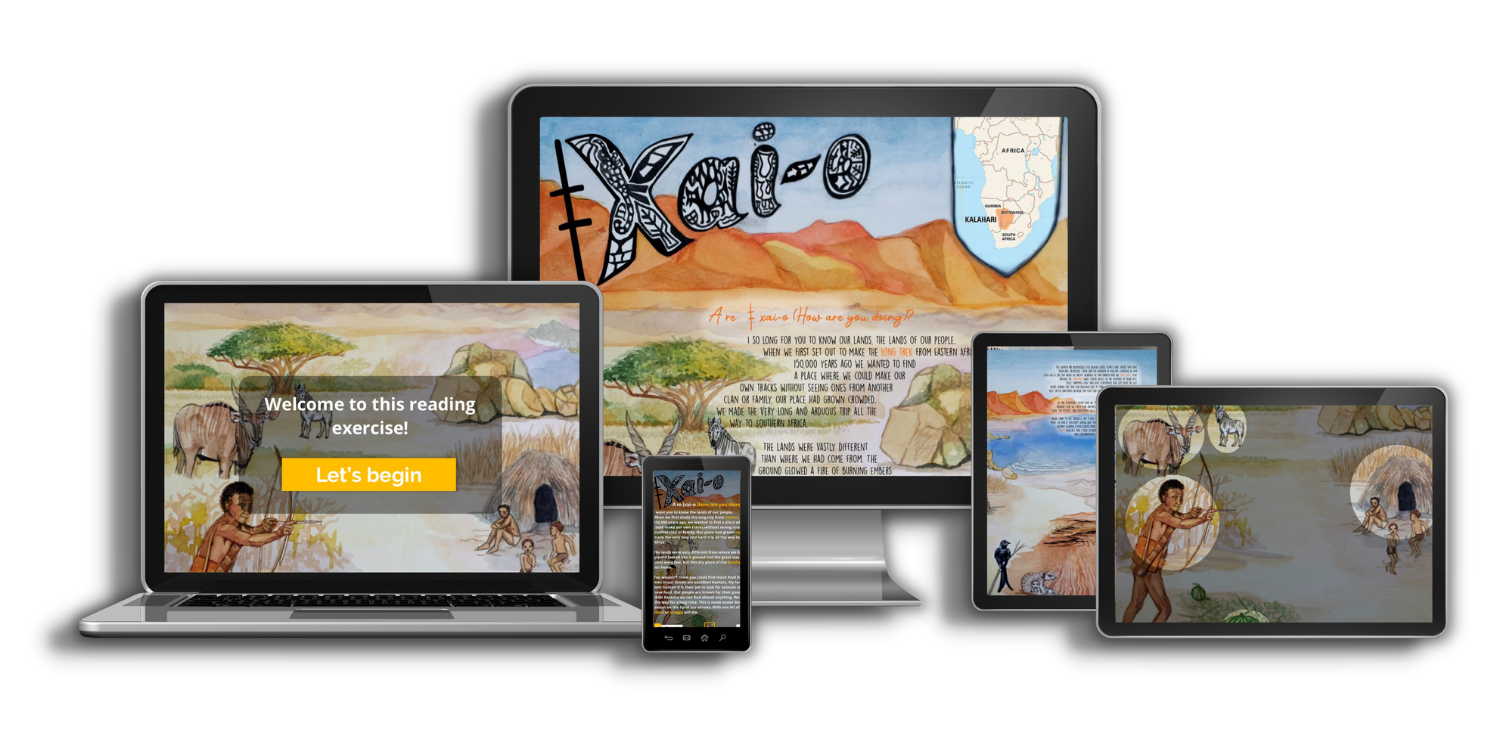Embarking on the Project THRIVE! implementation journey has had a profound impact on our team. Over the past two weeks, we have had the chance to receive training from the Shamiri Institute in Kenya. This experience has given us the opportunity to delve into various subjects, which have significantly expanded our understanding of mental health, instructional design, and program management. In this blog post, we will guide you through a deep learning journey, delving into the valuable insights we have acquired and the collaborative efforts that are propelling positive change in our community.
Raj led us in a fascinating session to start off our journey, during which we delved into the fascinating history of the Shamiri Institute. Understanding the organization’s narrative has provided us with valuable insights into its mission, values, and impact. By immersing ourselves in Shamiri’s journey, we gained a deeper appreciation for the importance of community-driven initiatives in fostering resilience and empowerment.
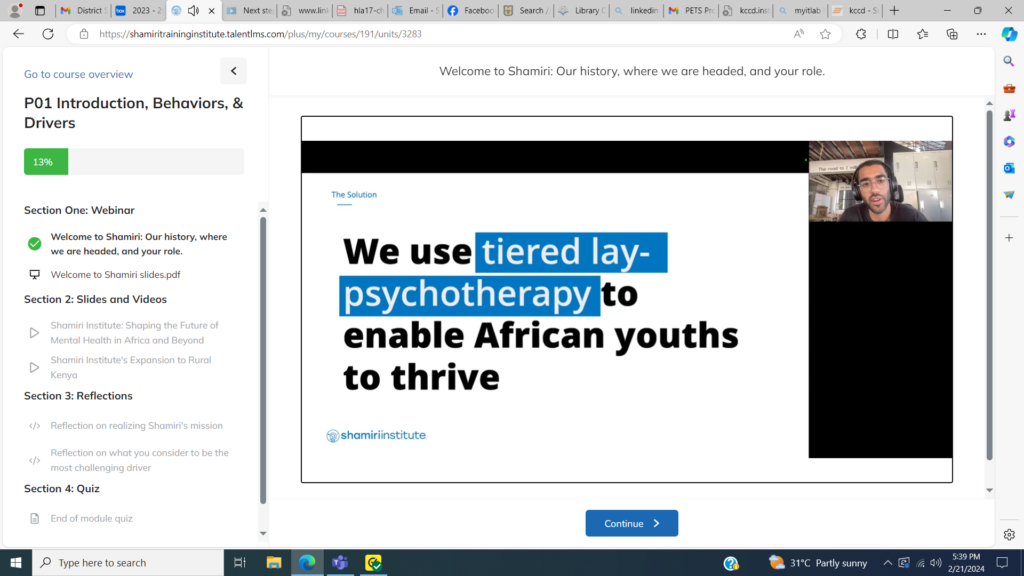
Delving into Mental Health: Examining its Past, Present, and Future Perspectives
As part of our investigation into mental health, we conducted a comprehensive analysis of the historical context of mental illness in Africa during the colonial era. Under the guidance of experienced mentors, we delved into the challenges faced by communities and the evolving attitudes towards mental health over time. By recognizing our past and embracing cultural understanding, we have laid the groundwork for a future that is both inclusive and resilient. We have recognized the need for a fresh perspective on decolonizing mental health care in Africa and the diaspora.
Unleashing Wise Interventions: Empowering Change Through Small Actions
The concept of “Little Treatments, Large Effects” introduced us to the power of strategic interventions in driving meaningful changes in behavior. Through meaningful discussions and interactive experiences, we learned how to harness the impact of small yet impactful actions to bring about meaningful transformations in ourselves and our community. This session has allowed us to recognize the possibilities for transformation in everyday situations, inspiring us to become catalysts for positive growth.
Understanding Psychopathology: Gaining Insight into Mental Health Disorders
Our extensive research in psychopathology has provided us with a comprehensive grasp of mental health disorders and their impact on individuals. By dispelling common misconceptions and fostering comprehension, we laid the groundwork for eradicating the negative perception associated with mental health issues and promoting open dialogue within our community.
Reflecting on Collaborative Rotary Clubhouse Meetings and More
Meetings at the Rotary clubhouse were significant occasions for our Shamiri supervisors to gather and engage in discussions and evaluations. These sessions provided team members with the opportunity to share insights, exchange ideas, and collectively process our learnings. By fostering an atmosphere of openness and encouraging the sharing of knowledge, these gatherings strengthened our sense of togetherness and shared purpose.
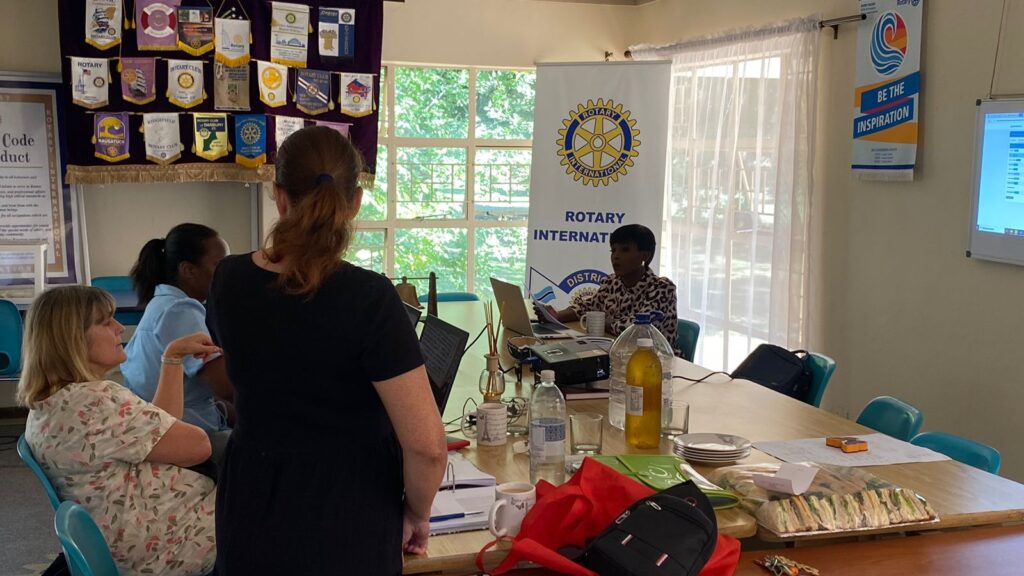
As I dug further into Shamiri’s electives, I came across a program called the Adversity, Trauma, and Resilience program Series. It teaches educators crucial techniques for building resilience in students and assisting them in overcoming adversity. In order to better comprehend the long-term impacts of adversity on children, it delved into ways to conceptualize the connections between the nature, duration, timing, toxicity, and instability of the challenge. We learned how to build healing communities in our classrooms, how to respond to trauma, and how to avoid re-traumatization at this session that focused on trauma-informed practices.
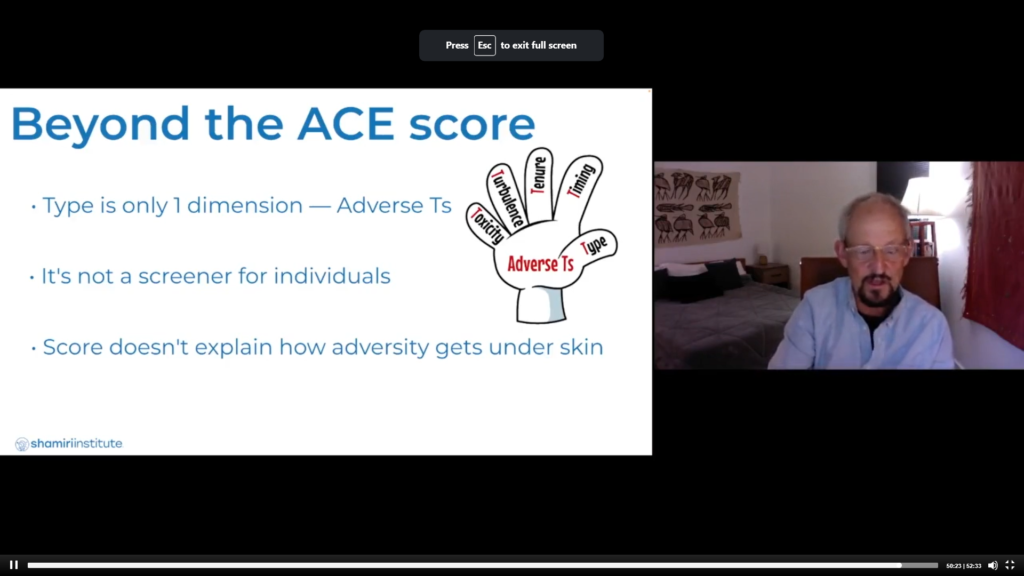
Developing Effective Strategies: Creating Plans with Industry Experts
Weekly Zoom calls with collaborators from William James College, Dr. Jill, and Dr. Shani provided valuable guidance on program planning and customization for our audience in Mhluzi. Their expertise enabled us to customize our approach precisely, guaranteeing its high relevance and effectiveness in our community context. The first week of May 2024 marks the start of their physical journey to Middelburg, accompanied by four psychology graduate students. Together, we have carefully selected 6 workshops that delve into important subjects like adolescent development, communicating effectively with teenagers, establishing boundaries and discipline, and fostering emotional resilience.
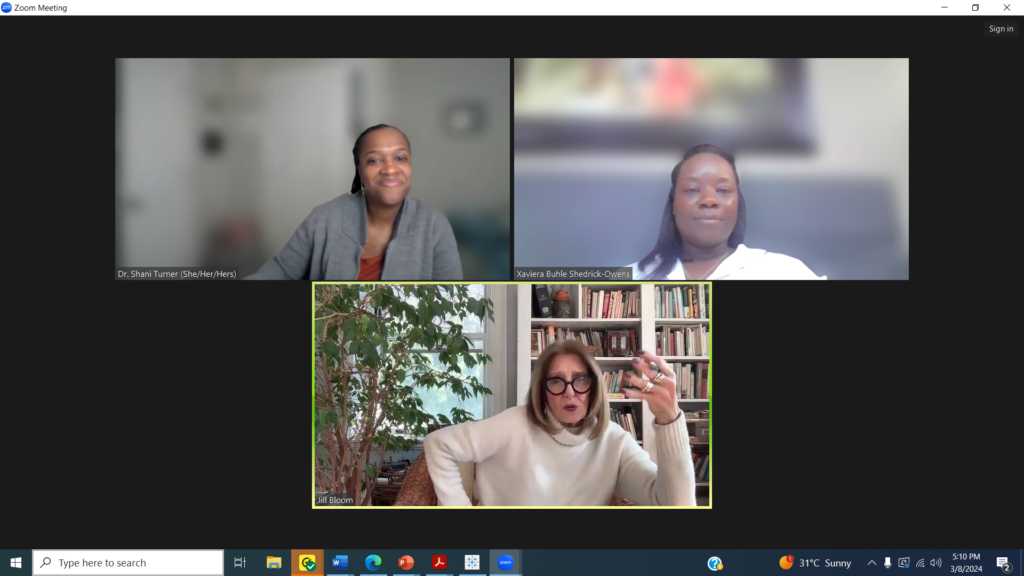
Academic Endeavors: Structuring Program Management
Our team is dedicated to creating a thorough set of documents to support the planning and execution of our program, in addition to our immersive training experience. By establishing clear project objectives, developing work breakdown structures, and creating timelines, we are laying the foundation for a successful implementation journey.
We share a commitment to achieving greatness and fostering creativity, which motivates us to combine our expertise from the Shamiri Institute and William James College with our academic endeavors in program management. Together, we have the chance to create a meaningful difference and foster resilience in our community. With unwavering resolve and a positive outlook, we set forth on this endeavor, fully aware that our endeavors will pave the way for a more promising and sustainable future for everyone. Join us as we strive to combine instructional design and program management to empower communities and make a positive impact on people’s lives.
Collaboration in Action
Day 1- Adolescent Development and Mental Health
Today marked the beginning of our programs, where we introduced two separate initiatives dedicated to promoting a deeper understanding and stronger support for adolescent development. The initial program explored the complex nature of adolescence, analyzing the usual paths of social, emotional, cognitive, and physical growth. Gabbi and Zian offered valuable insights into the consequences of deviations from normal developmental processes, emphasizing important warning signs that adults should be aware of. Maureen Nyaka made a significant contribution in fostering cultural understanding, making sure that the conversation had a profound impact by relating it to the Zulu context.
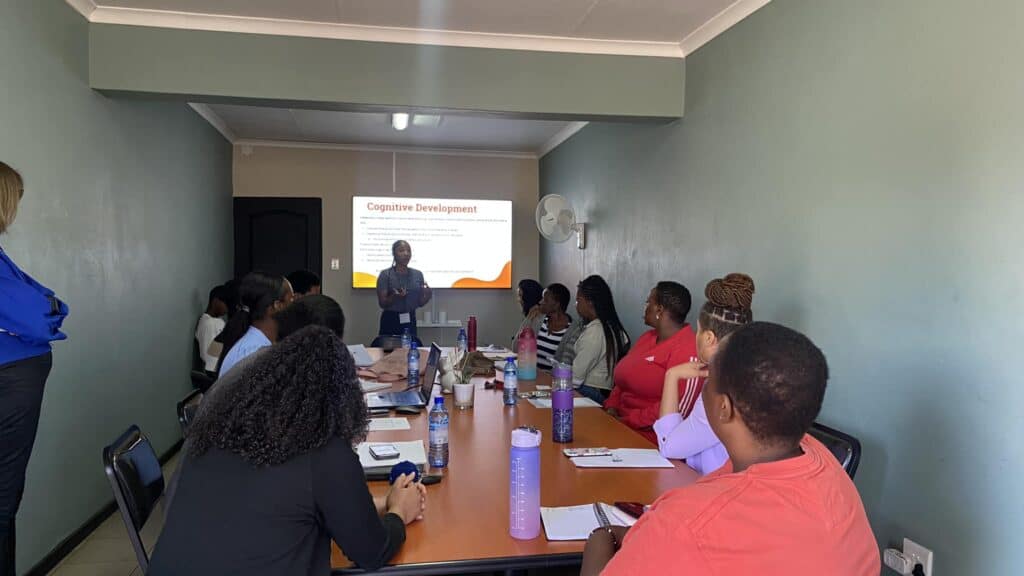
Throughout the session, it became clear how crucial this dialogue was as parents and educators openly discussed their experiences and concerns. A concerned parent reached out for support in dealing with their child’s self-harming behavior, hoping to find guidance on how to approach this difficult situation. Another parent shared her concerns about handling her child’s medication, highlighting the difficulties of dealing with unfamiliar treatments. An educator wittily, yet thoughtfully, pointed out the common challenges faced by students and teachers, raising the question of who truly requires the greatest amount of assistance. These honest discussions highlighted the common difficulties experienced by individuals who are guiding teenagers through this crucial phase of life.
Despite encountering some unexpected challenges, such as over-ordering food and finding our venue occupied for exams, we were able to adapt quickly. The overwhelming praise we received confirmed the worth of our endeavors and the significance of our quick thinking and ability to solve problems as they arise. The sincere enthusiasm and appreciation expressed by participants underscored the importance of these programs and reaffirmed our dedication to promoting adolescent growth through collaborative, community-based initiatives.
Day 2 -Effective Communication
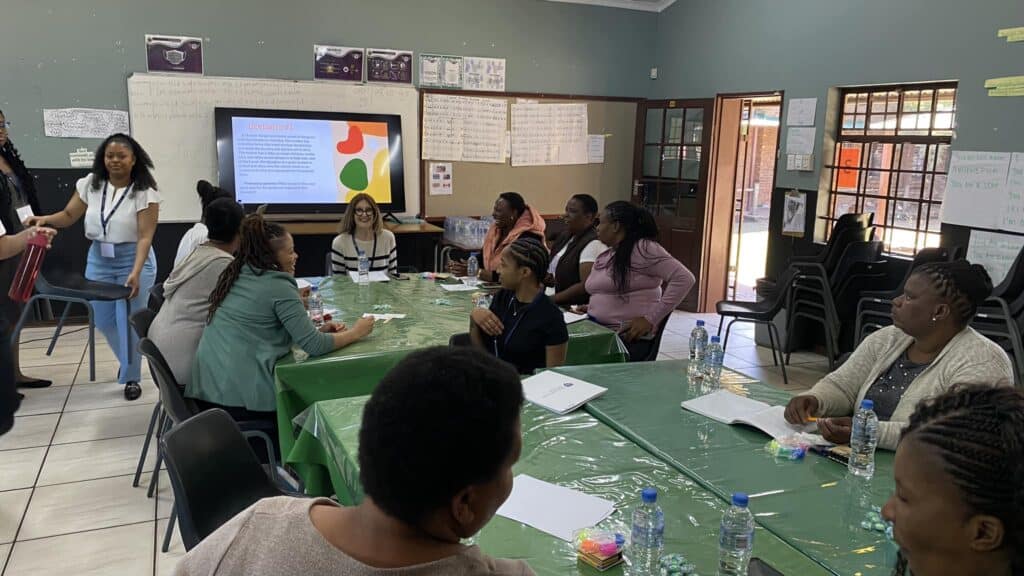
We returned today, equipped with an improved strategy and a revitalized determination. Our project focuses on promoting mental health and strengthening the bond between youth and parents. It provides us with valuable opportunities to learn and improve our programs and partnerships. Once again, we encountered an unforeseen change in our venue, but this time, we were proactive and efficiently made decisions on how to adjust. Both sessions took place in the same classroom, and we made sure to arrange the seating to fit everyone comfortably.
Today, Ashley delivered an engaging presentation on techniques for effective communication, with a special emphasis on the significance of active listening. She examined typical obstacles that adults encounter in communication and provided techniques to surmount these difficulties. The session ignited lively discussions, and it was truly inspiring to witness Ashley receiving immediate support from the participants, resulting in a more interactive and captivating session compared to the previous day.
Aside from the sessions, we engaged in an open and honest discussion with our partners regarding the development of long-lasting programs. We thoroughly examined the requirements for both parties to flourish in this collaborative partnership, with a strong focus on providing each other with support and ensuring long-term viability. This conversation was characterized by open and sincere communication, a focus on growth and understanding, and a collective dedication to the work we are all passionate about. The day was a shining example of adaptability, teamwork, and a sincere commitment to making a positive impact.
Day 3- Setting and Reinforcing Boundaries
Today, we had an incredible turnout, all thanks to our hard work in getting the community involved. Gabbi and Zian delivered a captivating presentation on the significance of establishing boundaries that can be effectively enforced, both for individuals and their teenagers. We participated in practical exercises, going through different scenarios such as dealing with raised voices, managing excessive technology usage, and discussing curfews.
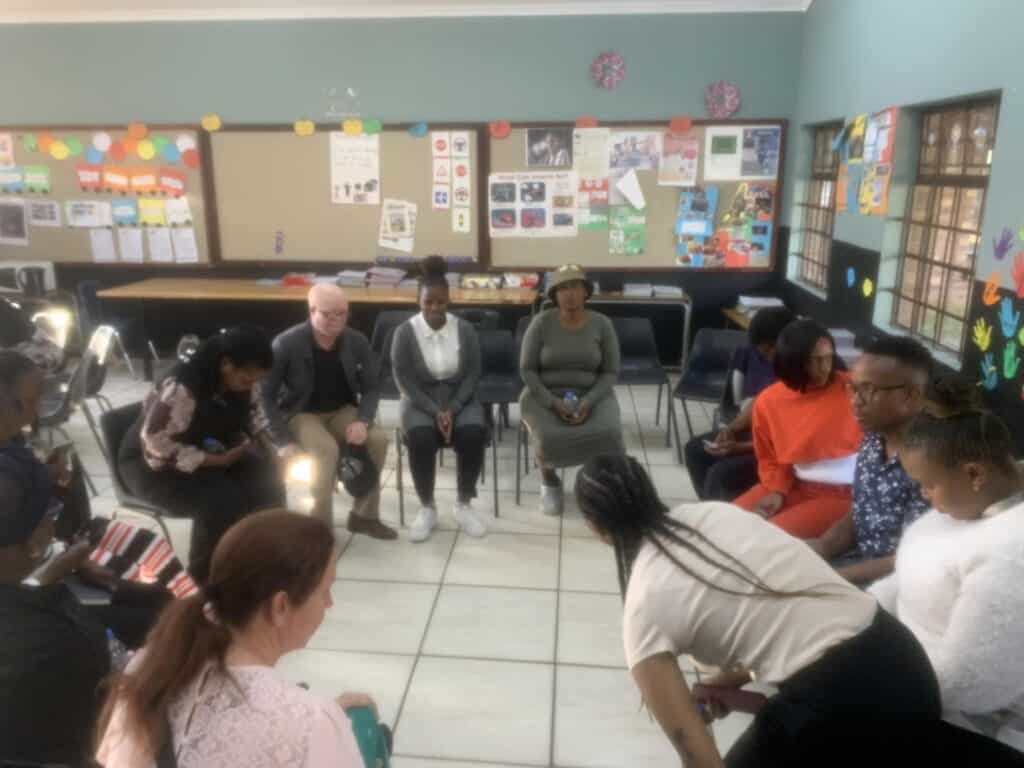
This session was incredibly enlightening, as it emphasized the incredible impact of giving parents a platform to share their experiences. It’s clear that these moments of connection, community, and support are absolutely essential, but unfortunately, they are often absent in the fast-paced world of modern family life. By providing a platform for open conversation, we not only provided parents with practical resources but also encouraged a sense of community and solidarity among them.
The day highlighted the importance of community involvement and the significance of establishing environments where parents can come together and provide mutual support. This solidified our dedication to ongoing discussions and creating a nurturing community for families navigating the difficulties of adolescence.
Day 4- Practicing Self-care
This week has been absolutely chaotic! 💨 Today, we discussed strategies for adults to prioritize self-care while also tending to the needs of the children in their lives. The discussions highlighted the importance of support groups in providing much-needed assistance and relief for parents navigating the challenges of raising children. Caretakers and parents expressed their need for continued support, emphasizing the significance of community in handling their duties.
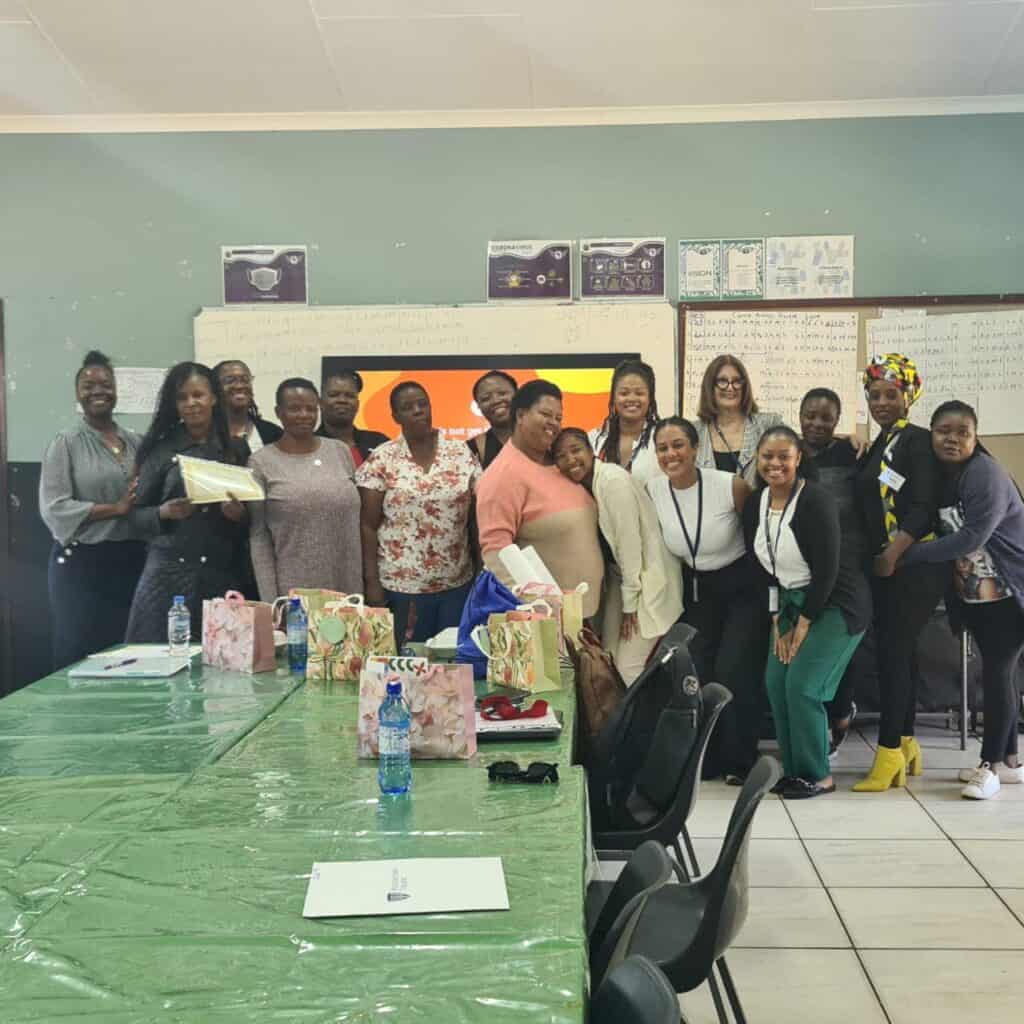
Dee conducted a session on self-care techniques, introducing practices like meditation, body scans, and the use of affirmations. These tools were highly praised, with participants showing a strong desire to incorporate them into their everyday lives. The demand for increased and uninterrupted support was unmistakable. Parents and caretakers expressed their desire for continuous programs, such as parent/child sessions, individualized support, and monthly meetings conducted in their native languages.
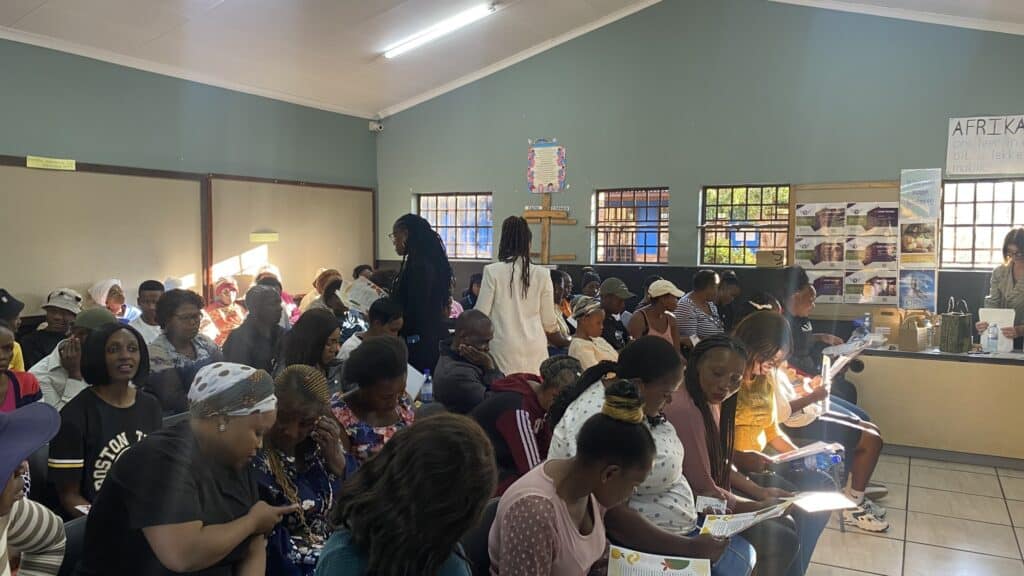
The demand is significant, and so is the request. Today’s discussions highlighted the importance of providing ongoing support to both children and their caregivers. The sincere feedback and obvious demand from the community fuel our unwavering dedication to creating these crucial programs and collaborations as we advance.
Overall Impact
We are making progress as our reach continues to grow. In just the first month of implementation, we have successfully engaged 134 students and 203 adults, resulting in a total of 337 participants! 🙂 In addition, we have provided training to 6 young individuals and 3 supervisors from our community in Middelburg. This has helped us strengthen our ability to maintain and grow these initiatives.
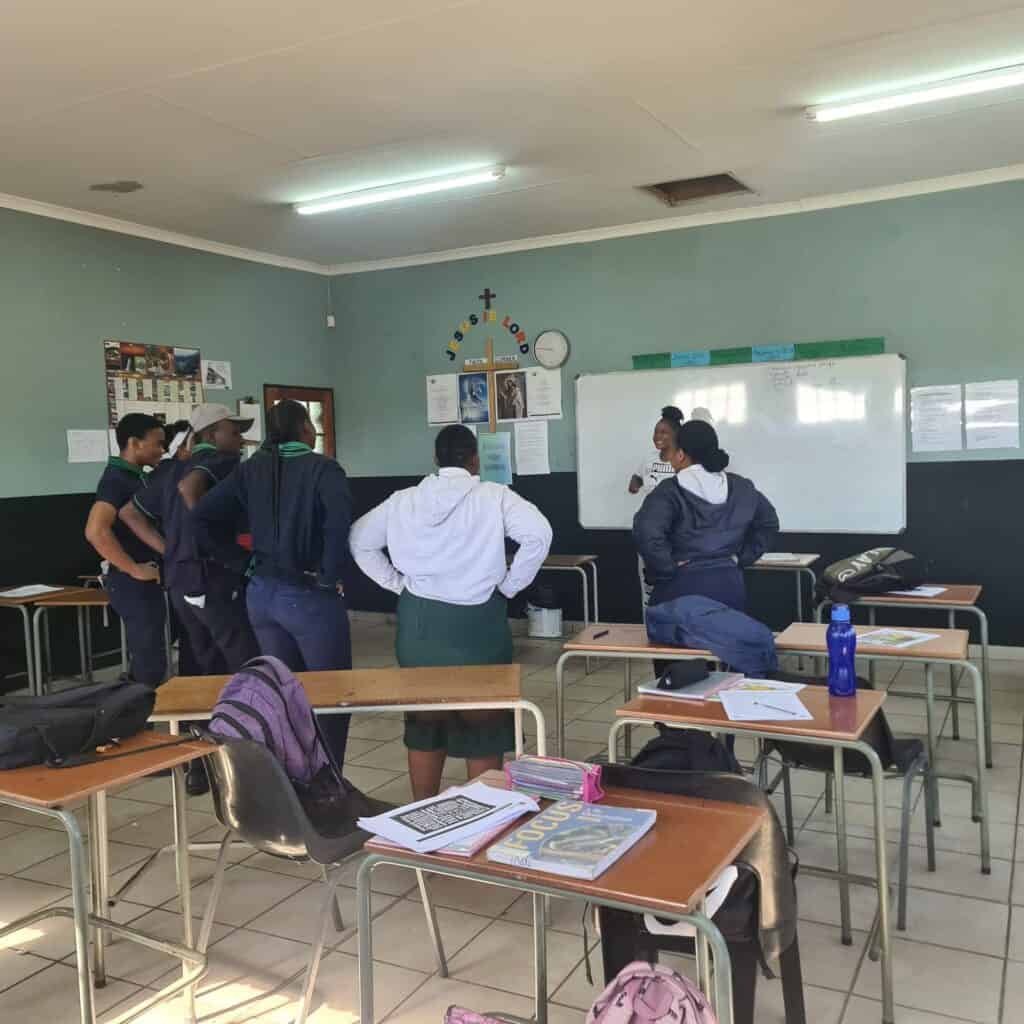
While we eagerly anticipate the data to evaluate our performance, we are directing our attention towards various important indicators. For students, we will examine self-reported measures of depression and anxiety, along with comparing their academic grades before and after taking part in the program. For adults, we will assess the surveys they filled out before and after the workshops to measure any shifts in their overall well-being and parenting approaches.
This data will be extremely important in gaining a comprehensive understanding of the impact of our programs and fine-tuning our approach. The initial feedback has been quite positive, and we are fully dedicated to utilizing these valuable insights to construct a strong and nurturing network for our community. The journey continues, and with each step we take, we are reminded of the significance and possibilities that come from working together.
Project Report Results : A study on the efficacy of Project THRIVE! among South African youths



